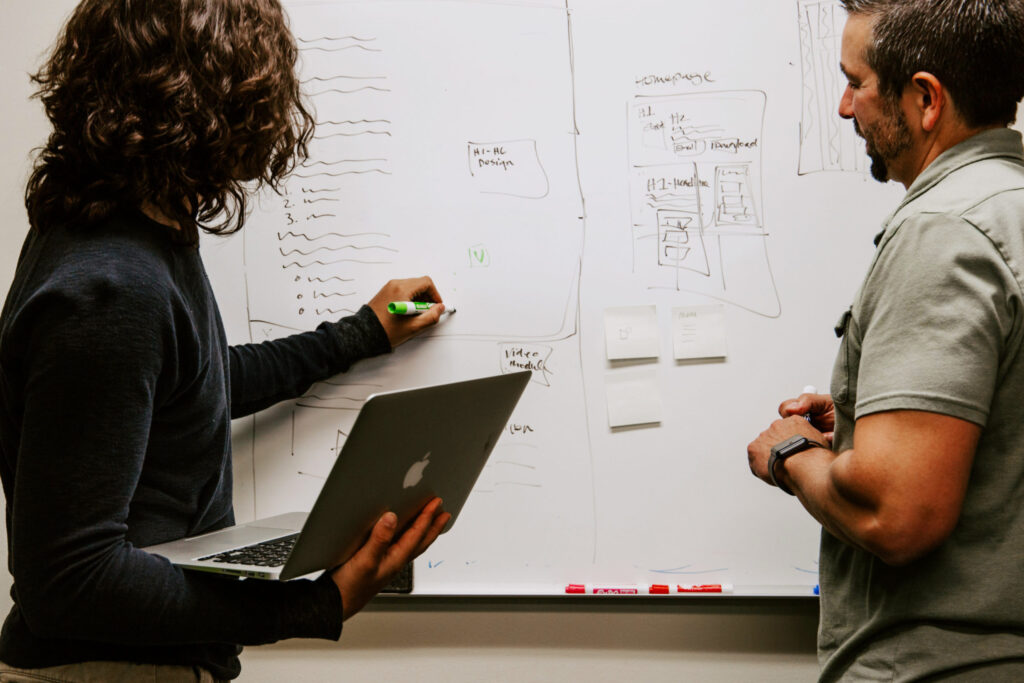Why continuous learning is the future of work
How many times have we set resolutions to pick up a new skill or rework an old one? And how often have we actually had the time to stick to them?
Whether it’s dusting off the guitar or finally learning how to code, learning skills and behaviours needed to achieve a certain goal is integral part of the human experience. But time is a necessary part of the formula for learning.
Carpe diem
In 2020, LinkedIn reported a surge in the use of their learning content: LinkedIn Learning. 2020 saw a whopping 560,000 hours of content watched in the first week of January and 1.7 million hours watched in the first week of April, three times as much as January. The Covid-19 pandemic disrupted our day-to-day lives and many of us found ourselves with a lot more time on our hands – more than we’d had in our entire adult lives.

Suddenly, we were provided with this missing part of the formula in order to learn more and were presented with an opportunity to indulge our professional and personal passions.
Nigel Davies reported in Forbes that, ‘Interestingly, the recent lockdown appears to have persuaded some employers that training should extend beyond professional development and into personal and creative passions’, showing that the need to learn creates a beneficial duality for the success of the business and employee wellbeing.
Even from LinkedIn’s report we can see people seized the opportunity of time and capitalised on this resource to learn, develop and grow. Intrinsically, it is in our nature, as humans, to want to learn and progress.
The Skills Gap
A huge concern for employers everywhere is the shortage of skills needed for a world of work that is developing more rapidly than we’ve ever seen.
Previously, part of the conversation had focused on young people being insufficiently skilled due to the shortcomings of the education system. People are now reconsidering this and asking if the more of the responsibility falls on employers. According to a recent article by Dr. Parves Khan: ‘For our economies to start thriving again, employers need to take responsibility to bridge what is, to a large extent, a training gap.’ In this article, Dr Khan also picks up on the effect of that rapid industry development has in outdating university degrees and graduates’ knowledge before even getting to the workplace. Whilst the pandemic has shown that people want to learn, it has also redesigned institutions like universities, with the majority of 2021 graduates experiencing online learning in their final year. Traditional social skills have had a limited use in the work and learn from home era, whilst at least some basic technological skills have improved for many out of necessity.
So, what can employers do to help close the skills gap?
The creation of a culture of continuous learning beyond the education system is crucial to closing this skills gap.
According to IBM’s 2019 report, The Enterprise Guide to Closing the Skills Gap, they found that only half of the executives they surveyed were pursuing skills development strategies. Now is the time for employers to bridge their skills gap with training, reskilling and continuous learning in a workforce that’s hungry to learn, as well as those fresh to the world of work.

And what’s more, research by McKinsey in February 2020, showed that early reskilling programmes were showing signs of success where ‘48 percent say the programs are already enhancing bottom-line growth’. Importantly, it also reports that ‘respondents reporting reskilling efforts are more than twice as likely as other respondents to say their organizations are prepared to address potential role disruptions’. This research was performed just before the first tidal wave of the pandemic, arguably the biggest ‘role disruption’ many have faced in their careers.
So, if the pre-pandemic workforce were finding such benefit in reskilling programmes, it seems that a post-pandemic workforce with a reignited love for learning would only flourish with them.
The pandemic has only gone to prove that people, at any age, in any conditions, are eager to learn to grow. Let’s all harness our desire for learning, for both the success of our businesses and the care of our workforce.
For more information on re-skilling click here, or, let’s chat by hitting the connect button below.
